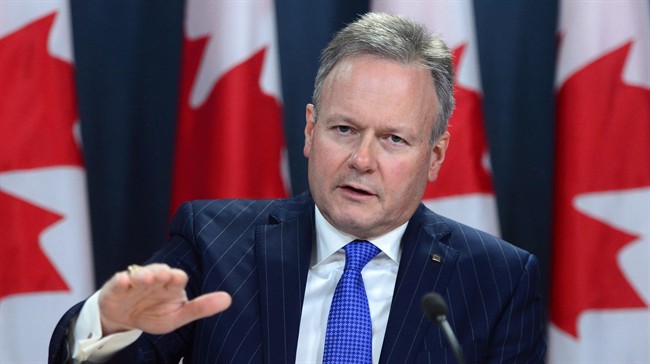Canada’s job market delivered another stellar performance in June by adding 45,300 positions, Statistics Canada said Friday.

The number, which vastly surpassed economists’ consensus expectation of 10,000 new jobs, increases the probability that the Bank of Canada (BoC) will raise interest rates at its next rate announcement on July 12.
READ MORE: Interest rates could rise July 12: Who are the winners and losers?
“We had held on to our October forecast for a Bank of Canada rate hike, but concede that’s likely to end up off the mark, as today’s jobs numbers cement the case for the central bankers to raise rates in the coming week,” Avery Shenfeld, chief economist at CIBC Economics, wrote in a note to clients.
“The jobs market is tightening, and not that far from what historically has been judged as full employment. Over to you, governor Poloz.”
READ MORE: What you need to know about mortgages if interest rates rise
Full employment is a scenario in which virtually all Canadians who are willing and able to work are employed. Moving past full employment would create labour shortages, with more jobs available than there are workers able to fill them. Such a condition may lead employers to raise wages, which could contribute to inflation. Raising interest rates would help keep inflation in check.
WATCH: Experts predict rise in interest rates

Report shows unemployment dipping, widespread job gains
The national unemployment rate dipped to 6.5 per cent from 6.6 per cent the previous month, according to StatsCan. That data point was also better than forecast, as analysts had expected joblessness to remain at 6.6 per cent.
READ MORE: Canadian provinces ranked by average consumer debt: Equifax report
The only sour note in the report was that the vast majority of the new jobs in June were in part-time work.
Still, the number of full-time positions also rose during the month. And full-time work made up most of the jobs growth over the past 12 months. Compared to June of last year, there are now 248,000 more full-time jobs, while part-time employment rose by 103,000 positions.
Quebec and British Columbia saw the biggest employment gains among the provinces in June, while employment held steady in Alberta.
- What is a halal mortgage? How interest-free home financing works in Canada
- Capital gains changes are ‘really fair,’ Freeland says, as doctors cry foul
- Budget 2024 failed to spark ‘political reboot’ for Liberals, polling suggests
- Starbucks looks likely to win U.S. Supreme Court case involving pro-union workers
READ MORE: Calgary’s unemployment rate the highest in Canada for a year
Across the country, both the goods-producing and services sectors saw employment gains. The goods sector added 16,000 jobs, mostly in agriculture, while the services sector added 29,200 positions, thanks to a large employment boost in professional, scientific and technical services.
Hourly wages for all employees grew 1.3 per cent year-over-year in June, matching the same increase reported for May, the agency said. The number of hours worked last month increased 1.4 per cent, up from a 0.7 per cent gain in May, it added.
READ MORE: Could you handle a 33 per cent interest-rate hike on your debt? If not, start paying it off now
No sign of inflation for now, but rates likely to go up anyways
The June jobs report adds to a series of positive economic signals over the past year and reinforced the view among most analysts that the BoC will hike rates next week.
“The last domino just fell,” Douglas Porter, chief economist at BMO Financial Group, wrote after the release of the report.
The central bank said on June 12 that the economy was showing signs of “moving past” the oil shock that prompted two interest rate cuts in 2015. Rates have held at 0.5 per cent since then, but many economists expect a hike of 0.25 of a percentage point next week.
READ MORE: Home prices to remain flat across Canada in 2018, says RBC – is this the new normal?
The bank has since hinted at an interest rate increase several times over the past few weeks.
Although inflation is still low in Canada, BoC Gov. Stephen Poloz told German business daily Handelsblatt on July 4 that the bank would need to act on interest rates well in advance of seeing an actual increase in the general level of prices.
“If we only watched inflation and reacted to inflation, we would never reach our inflation target, we’d always be two years behind in the reaction,” Poloz said.
In other words, he added, “when you are driving toward a red stoplight, you ease up on the accelerator well before you get there instead of waiting for the last second to stop.”
According to economists, the June jobs report is one more sign that the Canadian economy is gaining speed and might be in need of a gentle deceleration.
– With files from the Canadian Press




Comments